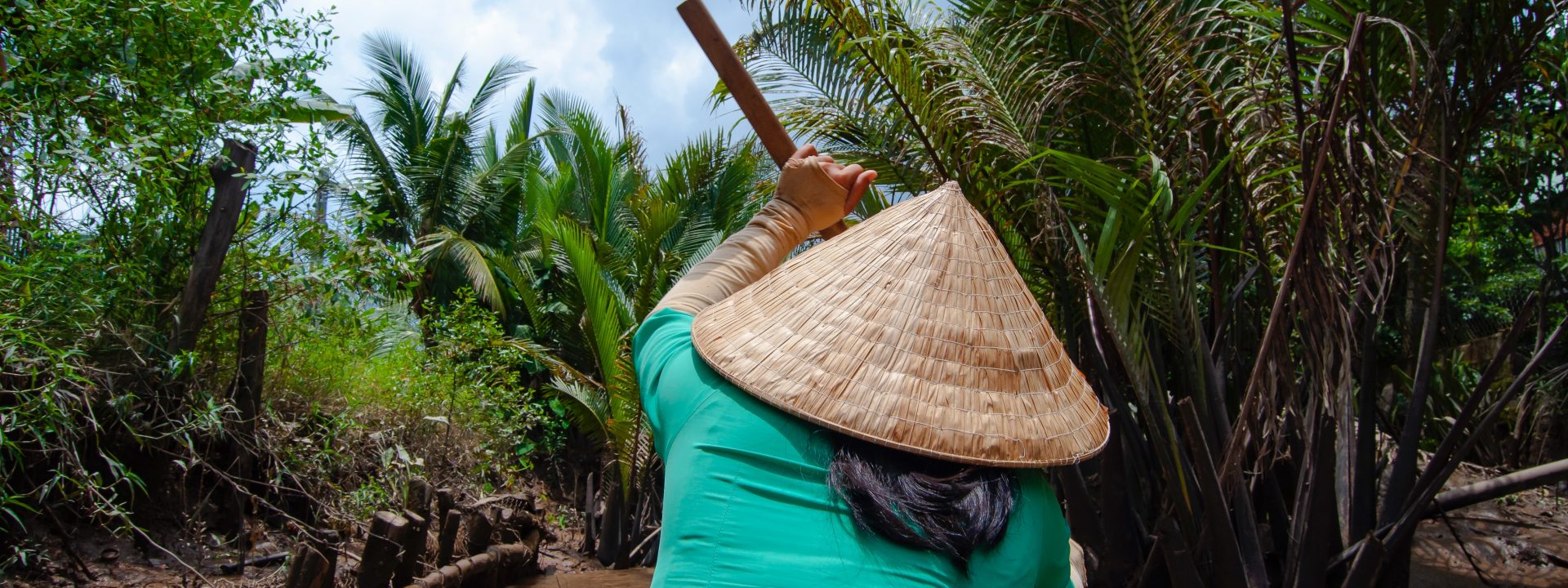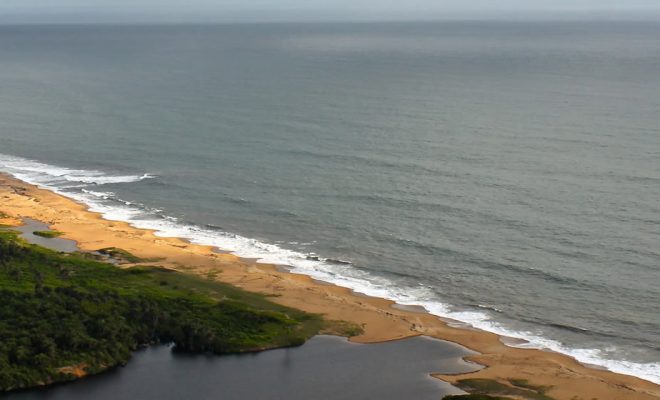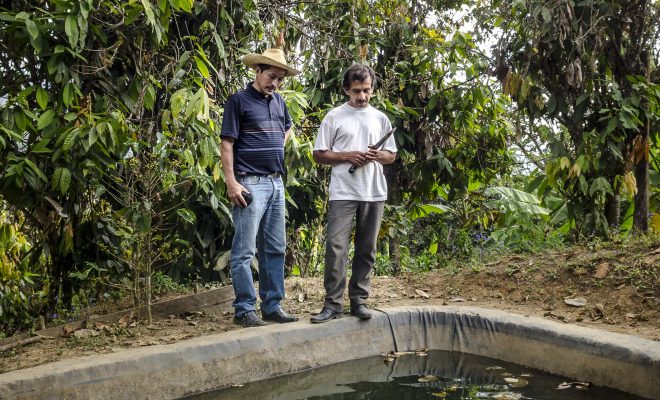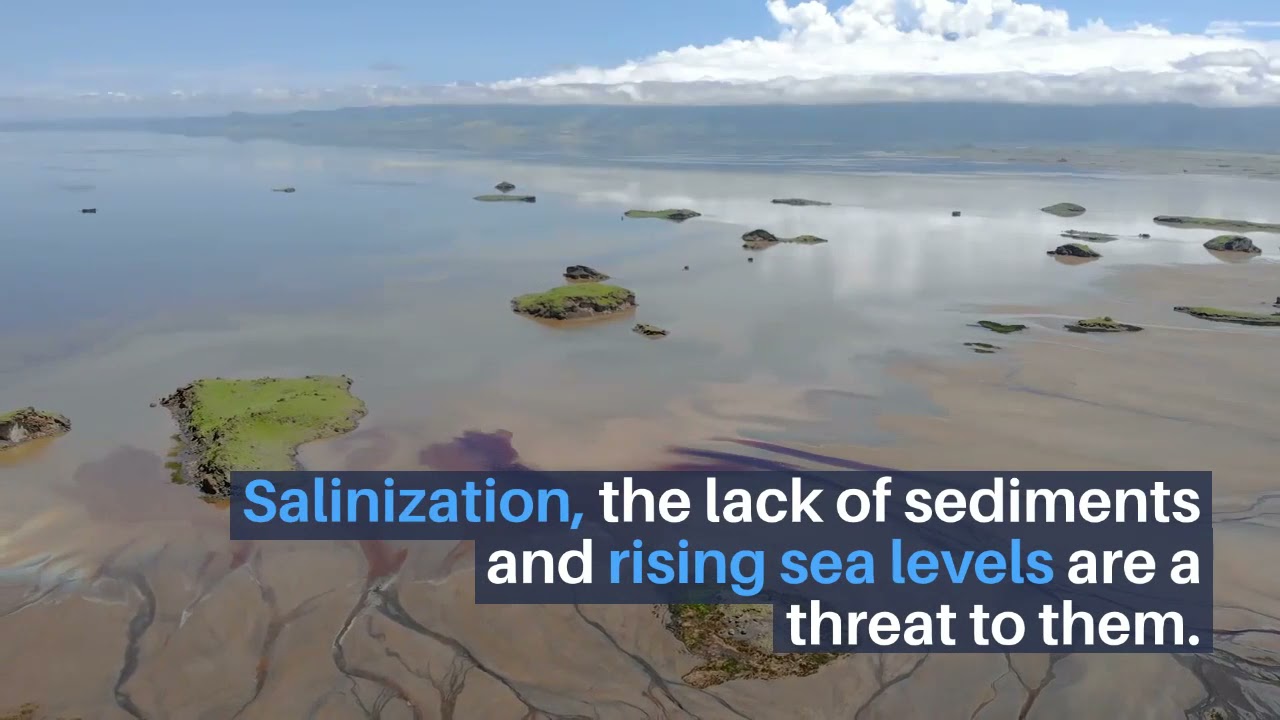
Little did the international public opinion know about the Mekong River until the Vietnam War made it known and introduced it into popular culture. The world discovered then the geopolitical importance of a watercourse that, after being born in the Himalayas range, flows some 4,350 km through China, Burma, Laos, Thailand, Cambodia and Vietnam.
The Mekong River was declared a Biosphere Reserve by UNESCO in 1957, at the height of the escalating war. It was an attempt to raise international awareness that went virtually unnoticed at a time in which nature was fully at the service of economic growth and geography was at the service of military strategy. The disasters of the war revealed the vital importance of the river for the entire Indochina peninsula. Its basin of more than 800,000 km² is currently home to around 100 million people whose food and economy largely depend on the richness of its waters. Fishing provides more than 2.5 million tons of annual catch and the rice fields allow up to three crops per year thanks to the nutrients of the silt sediments.
The Vietnamese section of the Mekong is almost entirely a delta of 40,000 km2, inhabited by more than 21 million people. During the war, the region experienced a severe alteration of its ecological balance due to chemical attacks and military modification of waterways. Even though some of those wounds still remain, the remarkable resilience of its inhabitants and the measures implemented by the Vietnamese government allowed the recovery of a key ecosystem for the country and the South China Sea.
The success of this recovery was recognized by several biological studies and, in 2008, a report published by WWF/Adena showed that 1,068 new species (among them 519 plants, 279 fish, 88 amphibians or 15 mammals) were discovered between 1997 and 2007. For this reason, biologists described the delta as a “hidden biological treasure.”
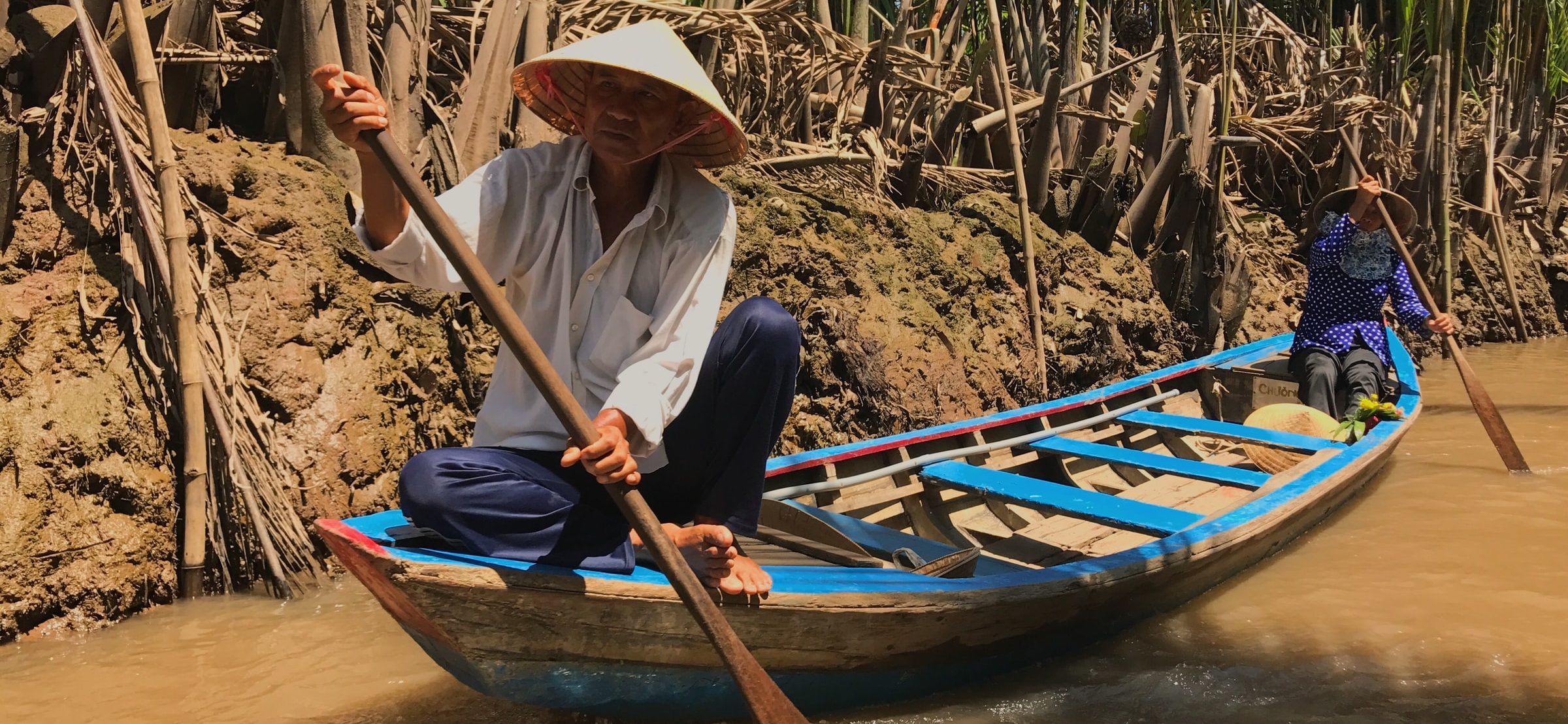
The Vietnamese section of the Mekong is almost entirely a delta of 40,000 km2, inhabited by more than 21 million people. © Anne Lin-unsplash
Freshwater in recession
However, this treasure is deteriorating and its future is seriously threatened. The problems in the Mekong Delta can be extended to most of the deltas around the world, which are experiencing ecological deterioration due to pollution, inadequate management of the land and resources and climate change.
The salinization of water is the alteration that most directly affects agriculture. The water provided by the Mekong River flow ranges between 15,000 and 39,000 m3 per second and a downward trend has been detected in the last two decades. In 2016, a drought affected the delta with a harshness not seen in 100 years and, since then, farmers have not had any peace of mind. In 2019, rainfall only reached 60-70% of the annual average, and all alarms went off; but the dry season of 2020 broke all previous records, as saltwater reached as far as 130 km inland in some areas of the delta.
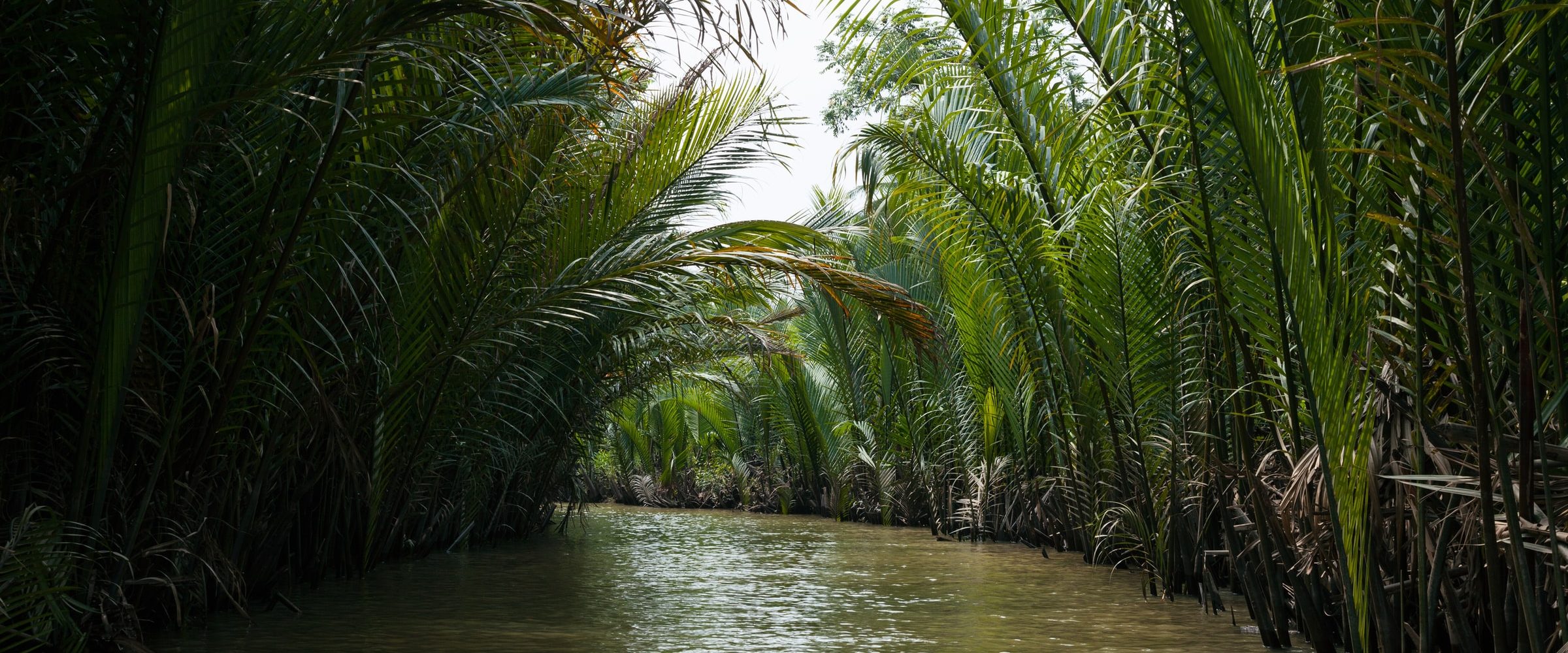
The problems in the Mekong Delta can be extended to most of the deltas around the world. © Rowan Heuvel-unsplash
One of the highest levels of salinity was recorded during this year’s Tết, the celebration of the Vietnamese New Year, which marks the arrival of spring based on the lunar calendar, between the end of January and beginning of February. The farmers in Hang’s short film, finalist in the micro-documentary category at the We Art Water Film Festival 5, explain a dramatic situation they experience in their everyday life when they test water from irrigation canals every year to assess its degree of salinity.
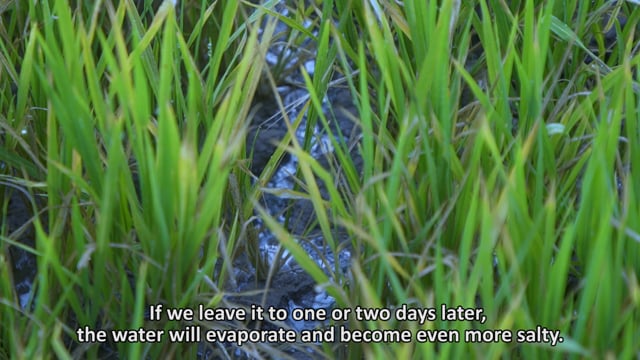
The Thirst for Freshwater, short by Hang (Vietnam). Finalist in the micro-documentary category at the We Art Water Film Festival 5.
If the water is fresh, they pump it, but if it is salty they don’t, as it would ruin their crops. “Water started tasting salty in November,” one of the protagonists of the short film explains. “As soon as we hear that the lock is open, news travels fast and we immediately run to pump, even at midnight.”
Saltwater intrusion during the dry season of 2019-2020 led to losses of 39,000 ha of rice, in spite of the efforts to control irrigation. Uncertainty now haunts farmers, who accept a certain level of salinity at the prospect of losing everything: “If we stop pumping, one or two days later, water would evaporate, becoming even more salty, and then we would not be able to save anything.”
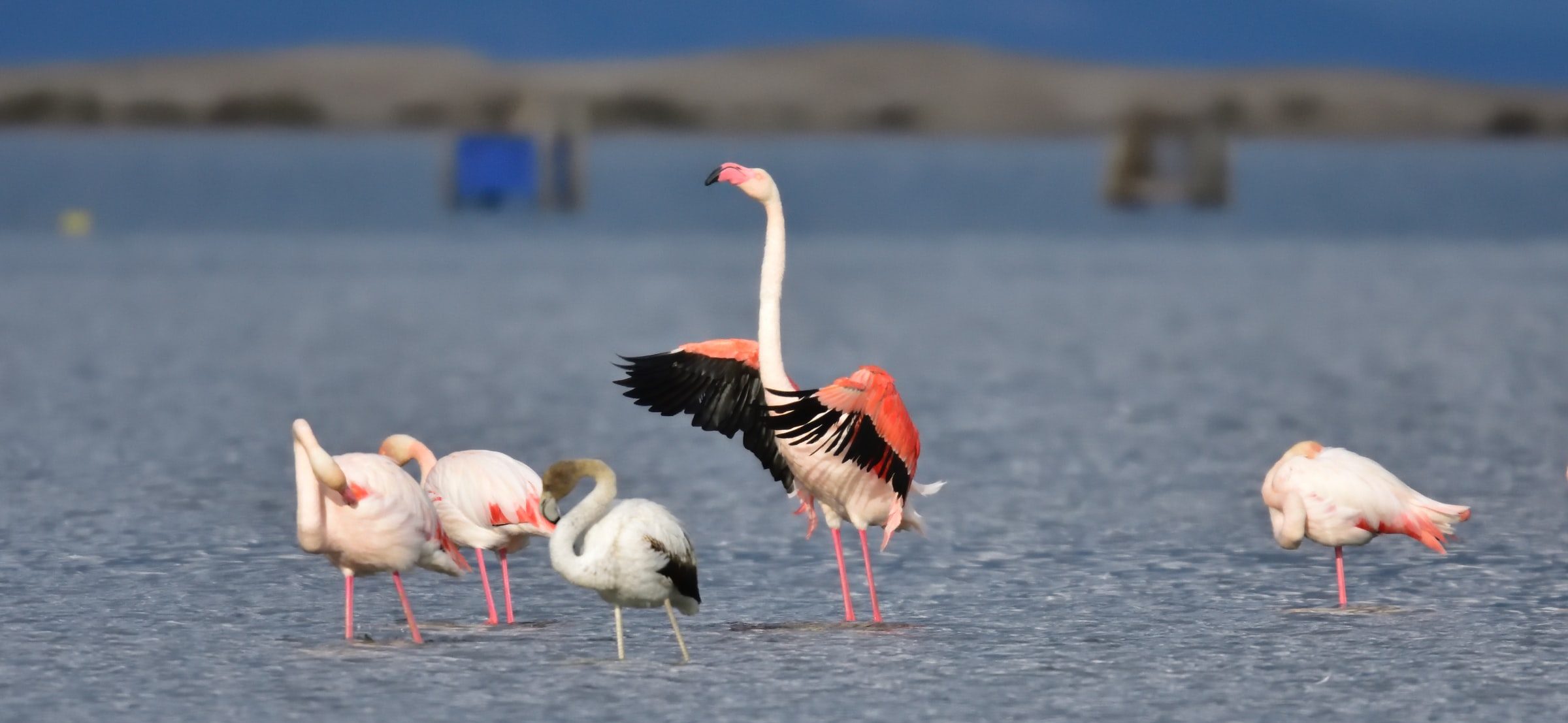
The planet’s environmental balance cannot afford to lose the deltas. © Santiago Lacarta-unsplash
Complex and very vulnerable ecosystems
The problems in the Mekong Delta can be extended to most deltas worldwide, which are experiencing the consequences of climate change, poor management of river basins and inadequate agricultural models. Deltas such as the Po, the Nile, the Ebro, the Mississippi, the Ganges-Brahmaputra, the Huang, and a long list of large river mouths, vital for food security and the balance of the freshwater-saltwater interaction, experience an alarming degradation.
In general, the salinity is mainly caused by the decrease of the river flow due to a decline in rainfall and the progressive rise of sea levels. The upstream dams, the dikes and channels, which have greatly increased in number in large rivers in the last few decades, also affect flow volumes, causing a disastrous decrease in sediments. This has been more evident after the construction of the Aswan Dam across the Nile, in Egypt, or the Three Gorges Dam, the most recent, on the Yangtze River, in China. In addition to the disruption of aquatic life, these dams retain silt that does not reach the river mouth, thereby contributing to the decrease in the sediment load and favoring the advance of the sea.
It is evident that the Mekong Delta is slowly sinking. Like all low altitude coastal areas, the delta is vulnerable to the rising sea level. Studies by the University of Can Tho, reported by the Mekong Environment Forum, predict that many provinces of the delta will be flooded by 2030. A disaster that will destroy farms and homes. The Vietnamese government estimates that around 500,000 people will have to be relocated, as some 1,200 families have been obliged to migrate.
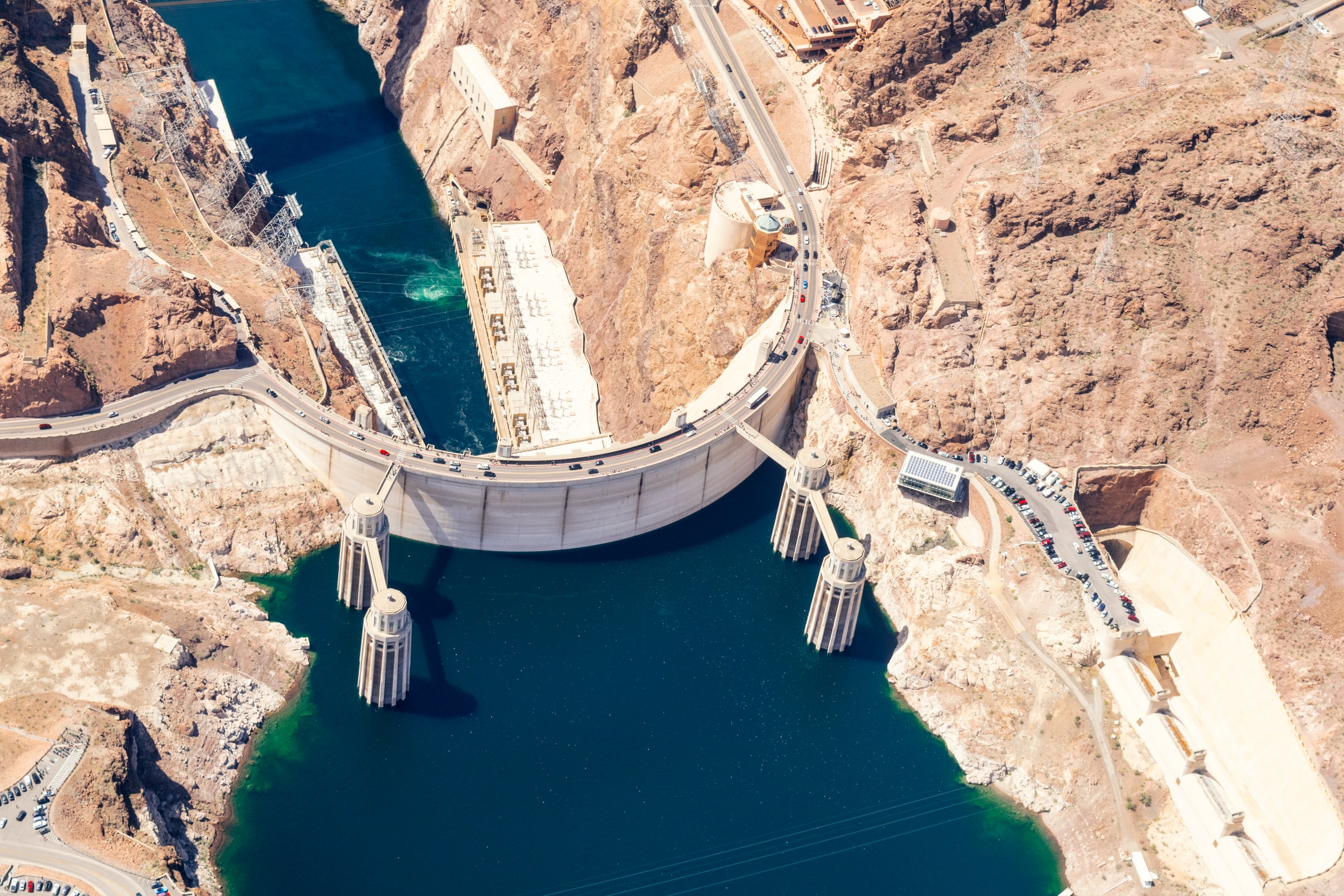
The upstream dams, the dikes and channels, which have greatly increased in number in large rivers in the last few decades, also affect flow volumes© Cedric Dhaenens- unsplash
Agricultural practices and poorly managed aquaculture are also unbalancing many deltas. The Mekong Delta experiences the problems of shrimp farming, which has generated a positive feedback phenomenon of ecosystem degradation. Around 15 years ago, in the fields nearer to the sea, the government encouraged farmers to adapt to the salinity increase by replacing some crops by shrimp farms. Mangroves, natural protectors against soil erosion that are fundamental to the balance of flora and fauna, were uprooted to build shrimp ponds. Shrimp farming required the use of chemical products and nutrients that further degraded the soil and the water, and the continued increase in salinity caused a rise in shrimp diseases that eventually made the hatcheries unviable. Thousands of families, who went into debt to build the facilities, went bankrupt and abandoned the farms. Traditional agriculture, the main bastion of ecosystem balance, started a decadence that must be reverted.
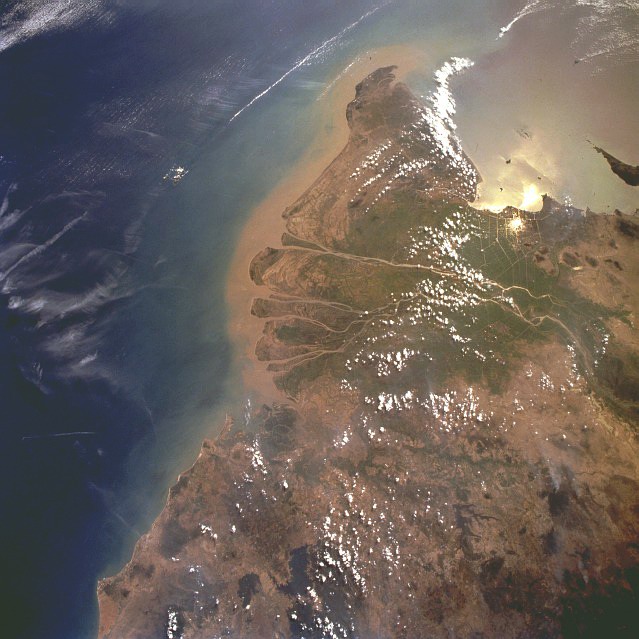
Saving the Mekong Delta is now a key priority for Vietnam. © Darwinek | NASA on Wikimedia Commons
International cooperation at a basin level
Today, the Mekong River Commission, institution established in 1957 that brings together the governments of Cambodia, Laos, Thailand and Vietnam, has redoubled its efforts to stop the river’s decline and jointly manage the water resources they share. China and Burma are not part of it, but the Commission is confident of their forthcoming membership to achieve the necessary integrated management. In 2018, the Commission and the United Nations Office for Project Services (UNOPS) signed an agreement to guarantee the sustainable development of the river and improve food security and the livelihoods of the population.
Saving the Mekong Delta is now a key priority for Vietnam. The process involves the full collaboration at a basin level, as problems have shown us that any unbalance in any part of the river has an impact downstream and ends up affecting the sea. The planet’s environmental balance and food security cannot afford to lose the deltas.


